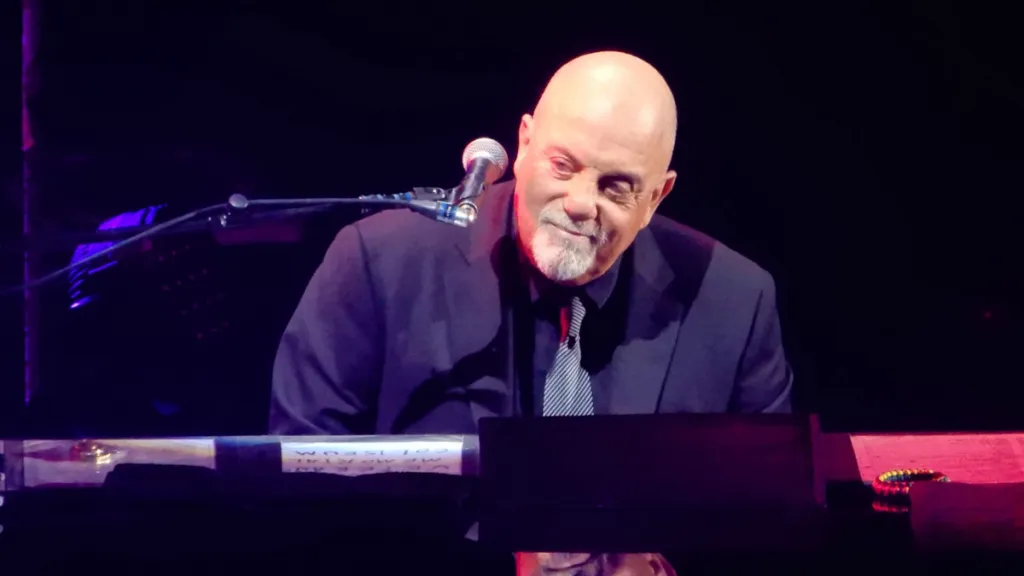
Photo Credit: Billy Joel by slgckgc / CC by 2.0
Billy Joel cancels all scheduled concerts in North America and England due to a diagnosis of a brain disorder, normal pressure hydrocephalus (NPH).
Billy Joel has been diagnosed with normal pressure hydrocephalus (NPH), a brain disorder in which excess fluid accumulates in the brain’s ventricles. As a result, the star has cancelled all concerts on his itinerary—17 shows in total, across stadiums in North America and England.
“I’m sincerely sorry to disappoint our audience, and thank you for understanding,” said Joel, whose last concert took place on February 22 in Connecticut. Near the end of the performance, after throwing his microphone stand to a crew member, Joel fell flat on his back. But he quickly stood up and was able to finish the set.
A month later, he announced that he was taking a four-month break from touring due to a “medical condition” that he said required surgery and physical therapy. Joel planned to return to the stage on July 5 in Pittsburgh.
“While I regret postponing any shows, my health must come first,” he said in a statement at the time. “I look forward to getting back on stage and sharing the joy of live music with our amazing fans. Thank you for your understanding.”
It’s unknown if his medical issues at the time were related to his NPH diagnosis, though that seems likely. NPH affects around 0.2 percent of people in their seventies (Joel is 76), and can cause walking issues, bladder control issues, and cognitive problems. Most commonly, it’s addressed with a surgery where a device is implanted to remove the excess fluid.
“This condition has been exacerbated by recent concert performances, leading to problems with hearing, vision, and balance,” his team explained in a statement. “Under his doctor’s instructions, Billy is undergoing specific physical therapy and has been advised to refrain from performing during this recovery period. Billy is thankful for the excellent care is he receiving and is fully committed to prioritizing his health.”
Normal pressure hydrocephalus (NPH) “can affect several brain-related abilities, including thinking and concentrating, memory, movement, and more,” reads a description from the Cleveland Clinic. “The symptoms of NPH look very much like those of dementia, but NPH is sometimes reversible.”
“NPH is unusual among dementia-like conditions because it’s often reversible,” the clinic explains. “However, the chances of reversing this condition are highest with early diagnosis and fast treatment. Delays in diagnosis and treatment make it more likely that the damage to your brain from the pressure will be permanent, severe, or both.”
Billy Joel finished his decade-long residency at Madison Square Garden in July last year. Afterward, he continued to tour across America and England with around two shows a month.





Recommended Comments
Join the conversation
You can post now and register later. If you have an account, sign in now to post with your account.